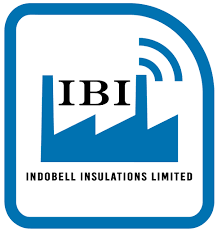
₹ 138000
₹46- ₹46
3000
₹87
90

8 Jan 2025
10 Jan 2025
13 Jan 2025
Application Details
The Indobell Insulation Limited IPO is scheduled to open on January 6, 2025, and close on January 8, 2025. This Fixed Price Issue IPO is priced at ₹46 per share with a face value of ₹10 per share. Investors can bid in lots of 3,000 shares. The total issue size is 22,05,000 shares, aggregating to ₹10.14 crore, entirely consisting of a fresh issue. The IPO will be listed on the BSE SME platform.
Key dates include the basis of allotment finalization on January 9, 2025, initiation of refunds on January 10, 2025, and credit of shares to demat accounts on the same day. The shares are expected to be listed on January 13, 2025. The cut-off time for UPI mandate confirmation is 5 PM on January 8, 2025.
About Indobell Insulation Limited (SME IPO)
Indobell Insulation Limited, incorporated in May 1972, specializes in manufacturing insulation products such as nodulated and granulated wool, including mineral and ceramic fibre nodules, and prefabricated thermal insulation jackets. These products cater to residential, commercial, and industrial applications, complemented by various related insulation materials.
The company offers a diverse product portfolio, including nodulated and granulated wool products like ceramic fibre nodules and mineral fibre nodules, as well as pre-fabricated thermal insulation jackets. Indobell provides customized insulation solutions tailored to client needs, encompassing specific sizes, shapes, and densities for projects requiring 3D and 2D designs, manufacturing drawings, and thermal analysis.
Indobell operates manufacturing units in West Bengal and Maharashtra and holds certifications such as ISO 9001:2015 for quality management, ISO 14001:2015 for environmental management, and ISO 45001:2018 for occupational health and safety. As of December 30, 2024, the company employs 31 personnel across various departments.
The company's competitive strengths include an experienced management team, efficient operations, a well-defined organizational structure, robust manufacturing facilities, quality assurance and accreditations, and a diversified product portfolio.
FAQ
IPO stands for "Initial Public Offering." It's the process through which a privately-held company becomes publicly traded by offering its shares to the general public and listing them on a stock exchange for trading. This allows the company to raise capital from investors and grants individuals and institutions the opportunity to invest in and own a portion of the company.
The life cycle of an IPO, or Initial Public Offering, begins with a company's decision to go public. It involves hiring underwriters, registering with regulatory authorities, determining the IPO price, marketing to investors, and the subscription period where investors place orders for shares. After allocation and listing, shares become publicly tradable, and the company enters the secondary market. Ongoing reporting and corporate governance are crucial as the company continues to operate as a publicly-traded entity. The IPO aims to raise capital for growth and provides investors with opportunities to trade shares in the company.
An IPO (Initial Public Offering) is when a private company goes public by selling shares to the public. Investors buy these shares, giving them ownership in the company. It's a way for companies to raise capital and expand. The process involves underwriters, regulatory filings, setting the IPO price, and marketing to investors. After the IPO, shares can be traded on a stock exchange. IPOs offer opportunities and risks, so investors should research and consider carefully.
"Upcoming IPOs" refers to initial public offerings that have been announced by private companies but have not yet occurred. These are companies that plan to go public in the near future by issuing shares to the public and listing them on a stock exchange. Investors often keep an eye on upcoming IPOs as they represent opportunities to invest in companies at their early stages of public trading, potentially capturing growth potential. These offerings are typically accompanied by significant media and investor attention as they approach their launch dates.
 Download
Download